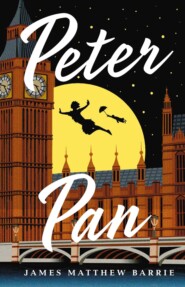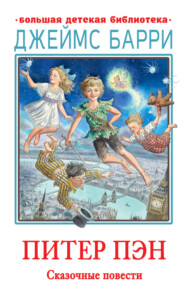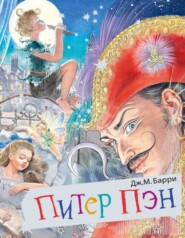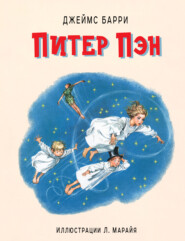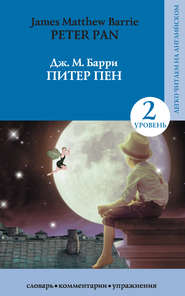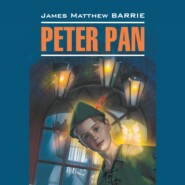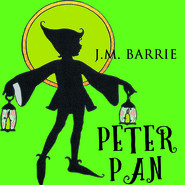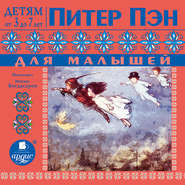По всем вопросам обращайтесь на: info@litportal.ru
(©) 2003-2024.
✖
When a Man's Single: A Tale of Literary Life
Автор
Год написания книги
2017
Настройки чтения
Размер шрифта
Высота строк
Поля
'He is quite vigorous in appearance now,' said Rob.
'Oh, I've given up hope,' continued the sad man dolefully.
'Still,' remarked Simms, 'I don't know that you could expect him to die just for your sake. I only venture that as an opinion, of course.'
'I don't ask that of him,' responded Wingfield. 'I'm not blaming him in any way; all I say is that he has spoilt my life. Here have I been waiting, waiting for five years, and I seem farther from publication than ever.'
'It is hard on you,' said Simms.
'But why did he break down in his story,' asked Rob, 'when he saw you?'
'Oh, the man has some sense of decency left, I suppose, and knows that he has ruined my career.'
'Is the Carlylean reminiscence taken from the biography?' inquired Simms.
'That is the sore point,' answered Wingfield sullenly. 'He used to shun society, but now he goes to clubs, banquets, and "At Homes," and tells the choice things in the memoir at every one of them. The book will scarcely be worth printing now.'
'I dare say he feels sorry for you,' said Simms, 'and sees that he has placed you in a false position.'
'He does in a way,' replied the literary executor, 'and yet I irritate him. When he was ill last December I called to ask for him every day, but he mistook my motives; and now he is frightened to be left alone with me.'
'It is a sad business,' said Simms, 'but we all have our trials.'
'I would try to bear up better,' said the sad man, 'if I got more sympathy.'
It was very late when Simms and Rob left the Wigwam, yet they were amongst the first to go.
'When does the club close?' Rob asked, as they got into the fresh air.
'No one knows,' answered Simms wearily, 'but I believe the last man to go takes in the morning's milk.'
In the weeks that followed Rob worked hard at political articles for the Wire, and at last began to feel that he was making some headway. He had not the fatal facility for scribbling that distinguishes some journalists, but he had felt life before he took to writing. His style was forcible if not superfine, and he had the faculty that makes a journalist, of only seeing things from one point of view. The successful political writer is blind in one eye.
Though one in three of Rob's articles was now used, the editor of the Wire did not write to say that he liked them, and Rob never heard any one mention them. Even Simms would not read them, but then Simms never read any paper. He got his news from the placards, and bought the Scalping Knife, not to read his own articles, but to measure them and calculate how much he would get for them. Then he dropped them into the gutter.
Some weeks had passed without Rob's seeing Simms, when one day he got a letter that made him walk round and round his table like a circus horse. It was from the editor of the Wire, asking him to be in readiness to come to the office any evening he might be wanted to write. This looked like a step toward an appointment on the staff if he gave satisfaction (a proviso which he took complacently), and Rob's chest expanded, till the room seemed quite small. He pictured Thrums again. He jumped to Mary Abinger, and then he distinctly saw himself in the editorial chair of the Times. He was lying back in it, smoking a cigar, and giving a Cabinet minister five minutes.
Nearly six months had passed since Rob saw Miss Abinger – a long time for a young man to remain in love with the same person. Of late Rob had been less given to dreaming than may be expected of a man who classifies the other sex into one particular lady and others, but Mary was coming to London in the early summer, and when he thought of summer he meant Mary. Rob was oftener in Piccadilly in May than he had been during the previous four months, and he was always looking for somebody. It was the third of June, a day to be remembered in his life, that he heard from the editor of the Wire. At five o'clock he looked upon that as what made it a day of days, but he had changed his mind by a quarter past.
Rob had a silk hat now, and he thrust it on his head, meaning to run downstairs to tell Simms of his good fortune. He was in the happy frame of mind that makes a man walk round improbabilities, and for the first time since he came to London he felt confident of the future, without becoming despondent immediately afterwards. The future, like the summer, was an allegory for Miss Abinger. For the moment Rob's heart filled with compassion for Simms. The one thing our minds will not do is leave our neighbours alone, and Rob had some time before reached the conclusion that Simms's nature had been twisted by a disappointment in love. There was nothing else that could account for his fits of silence, his indifference to the future. He was known to have given the coat off his back to some miserable creature in the street, and to have been annoyed when he discovered that a friend saw him do it. Though Simms's walls were covered with engravings, Rob remembered all at once that there was not a female figure in one of them.
To sympathise with others in a love affair is delightful to every one who feels that he is all right himself. Rob went down to Simms's rooms with a joyous step and a light heart. The outer door stood ajar, and as he pushed it open he heard a voice that turned his face white. From where he stood paralysed he saw through the dark passage into the sitting-room. Mary Abinger was standing before the fireplace, and as Rob's arm fell from the door, Simms bent forward and kissed her.
CHAPTER XI
ROB IS STRUCK DOWN
Rob turned from Simms's door and went quietly downstairs, looking to the beadle, who gave him a good-evening at the mouth of the inn, like a man going quietly to his work. He could not keep his thoughts. They fell about him in sparks, raised by a wheel whirling so fast that it seemed motionless.
Sleep-walkers seldom come to damage until they awake; and Rob sped on, taking crossings without a halt; deaf to the shouts of cabmen, blind to their gesticulations. When you have done Oxford Circus you can do anything; but he was not even brought to himself there, though it is all savage lands in twenty square yards. For a time he saw nothing but that scene in Simms's chambers, which had been photographed on his brain. The light of his life had suddenly been turned out, leaving him only the last thing he saw to think about.
By and by he was walking more slowly, laughing at himself. Since he met Mary Abinger she had lived so much in his mind that he had not dared to think of losing her. He had only given himself fits of despondency for the pleasure of dispelling them. Now all at once he saw without prejudice the Rob Angus who had made up his mind to carry off this prize, and he cut such a poor figure that he smiled grimly at it. He realised as a humorous conception that this uncouth young man who was himself must have fancied that he was, on the whole, less unworthy of Miss Abinger than were most of the young men she was likely to meet. With the exaggerated humility that comes occasionally to men in his condition, without, however, feeling sufficiently at home to remain long, he felt that there was everything in Simms a girl could find lovable, and nothing in himself. He was so terribly open that any one could understand him, while Simms was such an enigma as a girl would love to read. His own clumsiness contrasted as disastrously with Simms's grace of manner as his blunt talk compared with Simms's wit. Not being able to see himself with the eyes of others, Rob noted only one thing in his favour, his fight forward; which they, knowing, for instance, that he was better to look at than most men, would have considered his chief drawback. Rob in his calmer moments had perhaps as high an opinion of his capacity as the circumstances warranted, but he never knew that a good many ladies felt his presence when he passed them.
Most men are hero and villain several times in a day, but Rob went through the whole gamut of sensations in half an hour, hating himself the one moment for what seemed another's fault the next, fancying now that he was blessing the union of Mary with the man she cared for, and, again, that he had Simms by the throat. He fled from the fleeting form of woman, and ran after it.
Simms had deceived him, had never even mentioned Silchester, had laughed at the awakening that was coming to him. All these months they had been waiting for Mary Abinger together, and Simms had not said that when she came it would be to him. Then Rob saw what a foolish race these thoughts ran in his brain, remembering that he had only seen Simms twice for more than a moment, and that he himself had never talked of Silchester. He scorned his own want of generosity, and recalled his solicitude for Simms's welfare an hour before.
Rob saw his whole future life lying before him. The broken-looking man with the sad face aged before his time, who walked alone up Fleet Street, was Rob Angus, who had come to London to be happy. Simms would ask him sometimes to his house to see her, but it was better that he should not go. She would understand why, if her husband did not. Her husband! Rob could not gulp down the lump in his throat. He rushed on again, with nothing before him but that picture of Simms kissing her.
Simms was not worthy of her. Why had he always seemed an unhappy, disappointed man if the one thing in the world worth striving for was his? Rob stopped abruptly in the street with the sudden thought, Was it possible that she did not care for Simms? Could that scene have had any other meaning? He had once heard Simms himself say that you never knew what a woman meant by anything until she told you, and probably not even then. But he saw again the love in her eyes as she looked up into Simms's face. All through his life he would carry that look with him.
They took no distinct shape, but wild ways of ending his misery coursed through his brain, and he looked on calmly at his own funeral. A terrible stolidity seized him, and he conceived himself a monster from whom the capacity to sympathise had gone. Children saw his face and fled from him.
He had left England far behind, and dwelt now among wild tribes who had not before looked upon a white face. Their sick came to him for miracles, and he either cured them or told them to begone. He was not sure whether he was a fiend or a missionary.
Then something remarkable happened, which showed that Rob had not mistaken his profession. He saw himself in the editorial chair that he had so often coveted, and Mary Abinger, too, was in the room. Always previously when she had come between him and the paper he had been forced to lay down his pen, but now he wrote on and on, and she seemed to help him. He was describing the scene that he had witnessed in Simms's chambers, describing it so vividly that he heard the great public discussing his article as if it were an Academy picture. His passion had subsided, and the best words formed slowly in his brain. He was hesitating about the most fitting title, when some one struck against him, and as he drew his arm over his eyes he knew with horror that he had been turning Mary Abinger into copy.
For the last time that night Rob dreamt again, and now it was such a fine picture he drew that he looked upon it with sad complacency. Many years had passed. He was now rich and famous. He passed through the wynds of Thrums, and the Auld Lichts turned out to gaze at him. He saw himself signing cheques for all kinds of charitable objects, and appearing in the subscription lists, with a grand disregard for glory that is not common to philanthropists, as X. Y. Z. or 'A Wellwisher.' His walls were lined with books written by himself, and Mary Abinger (who had not changed in the least with the years) read them proudly, knowing that they were all written for her. (Simms somehow had not fulfilled his promise.) The papers were full of his speech in the House of Commons the night before, and he had declined a seat in the Cabinet from conscientious motives. His imagination might soon have landed him master in the Mansion House, had it not deserted him when he had most need of it. He fell from his balloon like a stone. Before him he saw the blank years that had to be traversed without any Mary Abinger, and despair filled his soul. All the horrible meaning of the scene he had fled from came to him like a rush of blood to the head, and he stood with it, glaring at it, in the middle of a roaring street. Three hansoms shaved him by an inch, and the fourth knocked him senseless.
An hour later Simms was lolling in his chambers smoking, his chair tilted back until another inch would have sent him over it. His gas had been blazing all day because he had no blotting-paper, and the blinds were nicely pulled down because Mary Abinger and Nell were there to do it. They were sitting on each side of him, and Nell had on a round cap, about which Simms subsequently wrote an article. Mary's hat was larger and turned up at one side; the fashion which arose through a carriage wheel's happening to pass over the hat of a leader of fashion and make it perfectly lovely. Beyond the hats one does not care to venture, but out of fairness to Mary and Nell it should be said that there were no shiny little beads on their dresses.
They had put on their hats to go, and then they had sat down again to tell their host a great many things that they had told him already. Even Mary, who was perfect in a general sort of way, took a considerable time to tell a story, and expected it to have more point when it ended than was sometimes the case. Simms, with his eyes half closed, let the laughter ripple over his head, and drowsily heard the details of their journey from Silchester afresh. Mary had come up with the Merediths on the previous day, and they were now staying at the Langham Hotel. They would only be in town for a few weeks; 'just to oblige the season,' Nell said, for she had inveigled her father into taking a house-boat on the Thames, and was certain it would prove delightful. Mary was to accompany them there too, having first done her duty to society, and Colonel Abinger was setting off shortly for the Continent. In the middle of her prattle, Nell distinctly saw Simms's head nod, as if it was loose in its socket. She made a mournful grimace.
Simms sat up.
'Your voices did it,' he explained, unabashed. 'They are as soothing to the jaded journalist as the streams that murmur through the fields in June.'
'Cigars are making you stupid, Dick,' said Mary; 'I do wonder why men smoke.'
'I have often asked myself that question,' thoughtfully answered Simms, whom it is time to call by his real name of Dick Abinger. 'I know some men who smoke because they might get sick otherwise when in the company of smokers. Others smoke because they began to do so at school, and are now afraid to leave off. A great many men smoke for philanthropic motives, smoking enabling them to work harder, and so being for their family's good. At picnics men smoke because it is the only way to keep the midges off the ladies. Smoking keeps you cool in summer and warm in winter, and is an excellent disinfectant. There are even said to be men who admit that they smoke because they like it, but for my own part I fancy I smoke because I forget not to do so.'
'Silly reasons,' said Nell. If there was one possible improvement she could conceive in Dick it was that he might make his jests a little easier.
'It is revealing no secret,' murmured Abinger in reply, 'to say that drowning men clutch at straws.'
Mary rose to go once more, and sat down again, for she had remembered something else.
'Do you know, Dick,' she said, 'that your two names are a great nuisance. On our way to London yesterday there was an acquaintance of Mr. Meredith's in the carriage, and he told us he knew Noble Simms well.'
'Yes,' said Nell, 'and that this Noble Simms was an old gentleman who had been married for thirty years. We said we knew Mr. Noble Simms and that he was a barrister, and he laughed at us. So you see some one is trading on your name.'
'Much good may it do him,' said Abinger generously.
'But it is horrid,' said Nell, 'that we should have to listen to people praising Noble Simms's writings, and not be allowed to say that he is Dick Abinger in disguise.'
'It must be very hard on you, Nell, to have to keep a secret,' admitted Dick, 'but you see I must lead two lives or be undone. In the Temple you will see the name of Richard Abinger, barrister-at-law, but in Frobisher's Inn he is J. Noble Simms.'
'I don't see the good of it,' said Nell.







